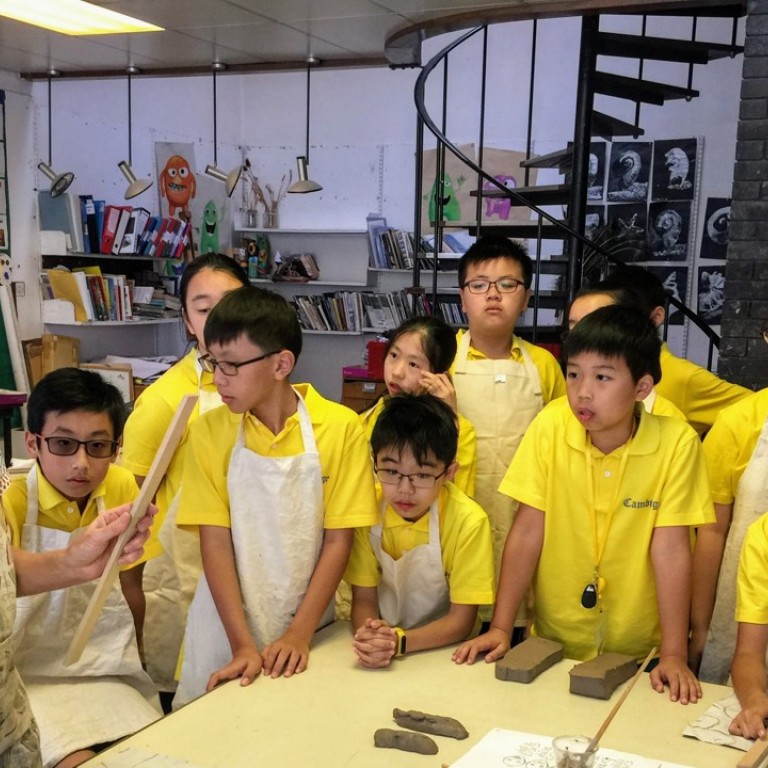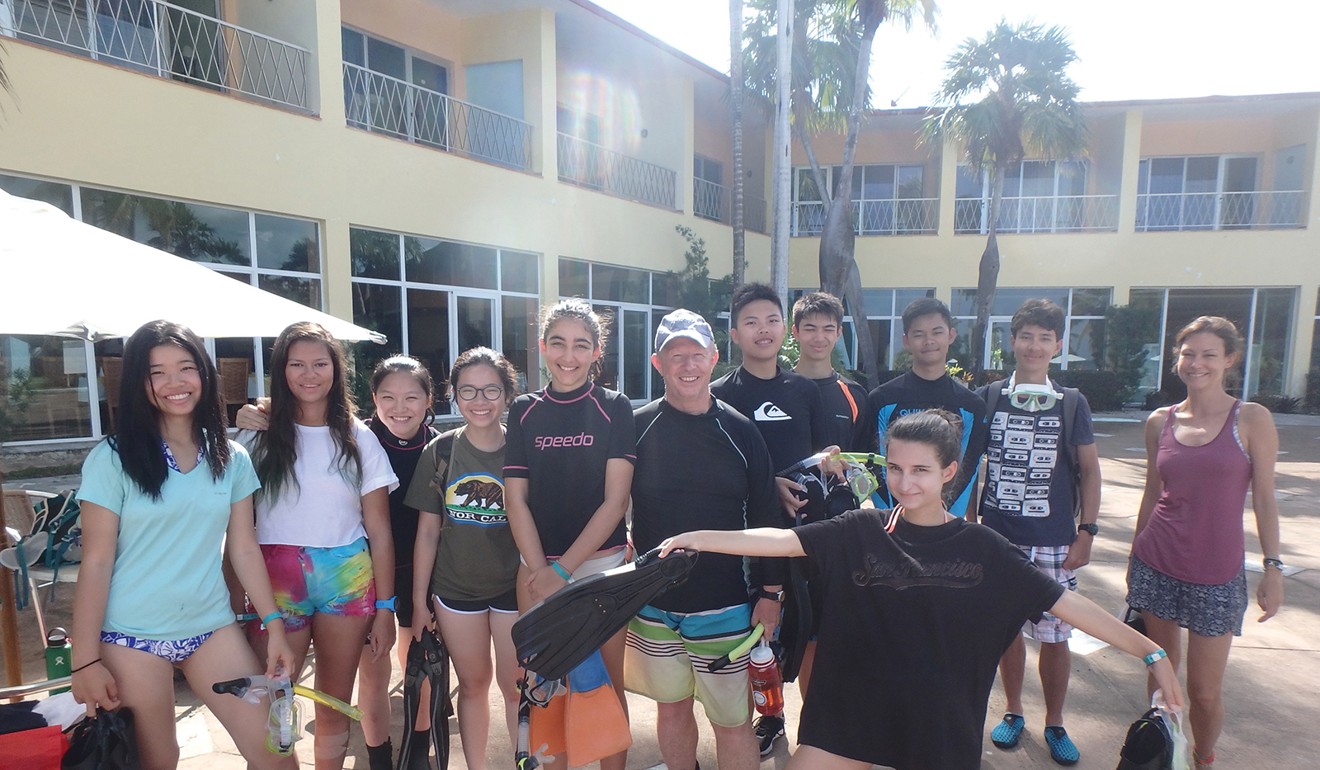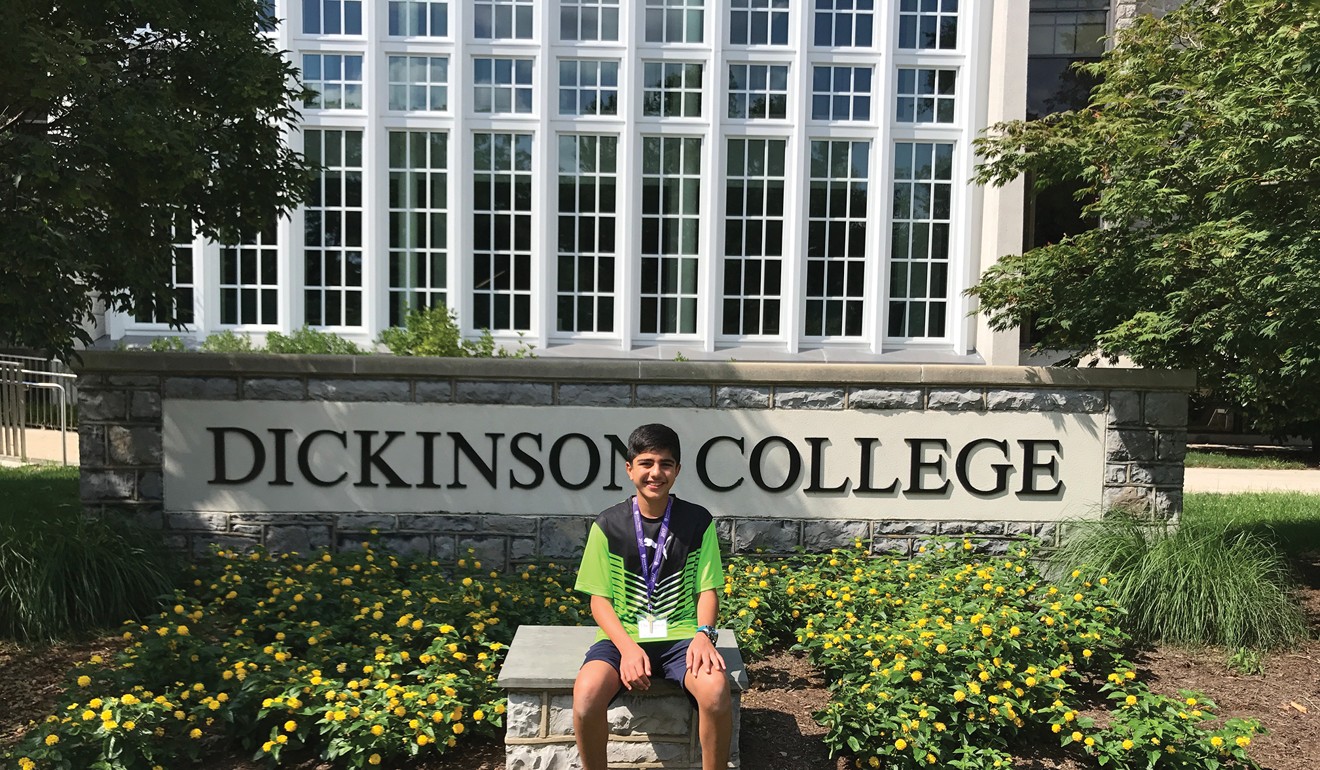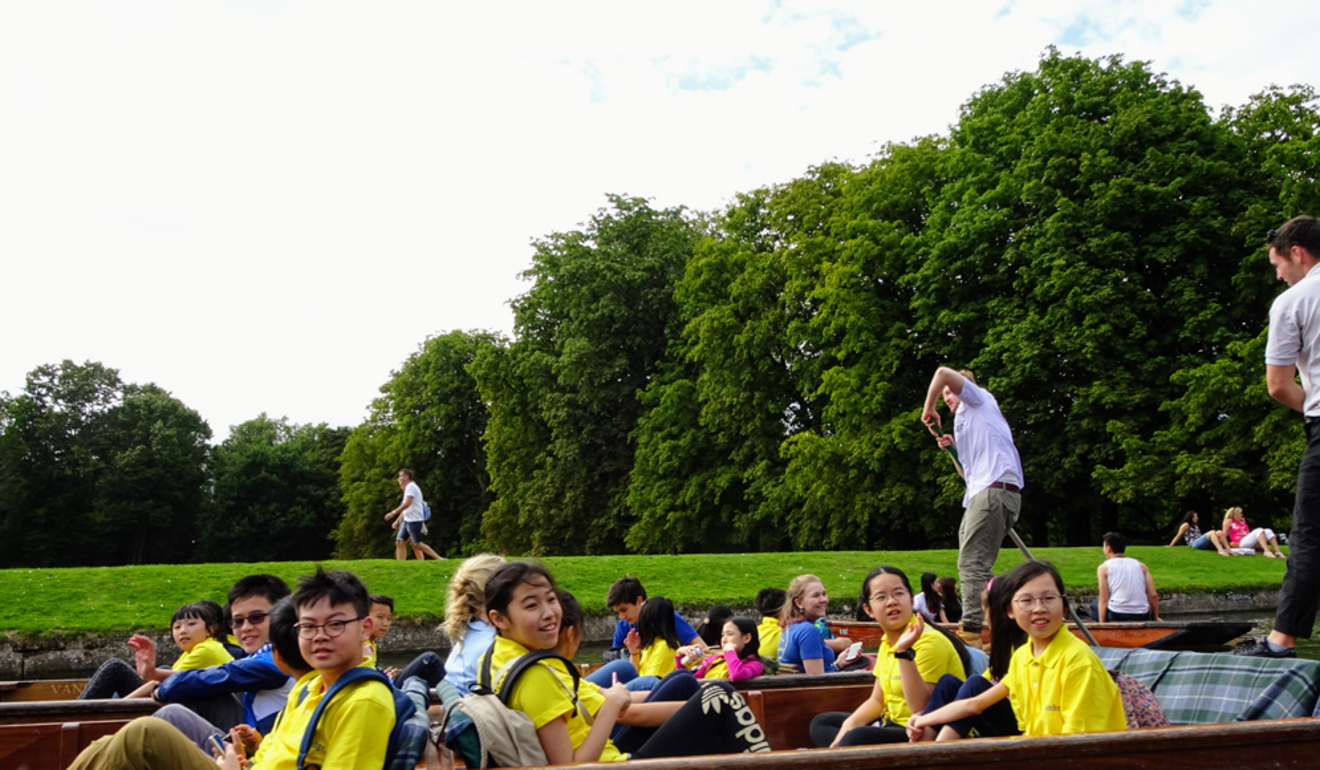
How pupils can benefit from overseas study trips
Local and international schools are now offering summer programmes more than just site visits and camps.
In years gone by, the stories swapped by Hong Kong pupils returning to school after the summer break would likely centre on camping trips to Lantau or beachside barbecues in the New Territories.
But now, with the growing number of opportunities to join specialised summer programmes which combine study and leisure activities, quite a few also have tales to tell of their exploits and excursions in more distant parts of the world.
Typically, these programmes are well planned, tightly run and closely supervised. For the pupils, they are generally eye-opening and action-packed, offering the chance to meet and mix with peers from other countries, discover new enthusiasms and, along the way, develop a stronger sense of self-confidence and independence.
The preparations for any such trip also give a particular focus to the preceding months. There is not just the matter of assessing options and thinking through the logistics. In many cases, pupils will also work on related research projects and throw themselves into fundraising initiatives to ensure that, all round, they gain as much as possible from the experience.
This year, over three weeks in June and July, Fung On-mei and Ethan Crocket, both now in Year 12 at South Island School, were part of a 10-strong group that went to Cuba. The trip was organised under the auspices of Operation Wallacea, an NGO that supports marine and rainforest conservation and promotes relevant educational programmes around the world.
The visit began with a two-day stay in Havana to get acclimatised and do a local tour before moving on to the Isle of Youth. This island is officially designated as a protected area and is the site of a special marine conservation project. It was the group’s base of operations for the next fortnight.
Accommodation was provided in a comparatively upmarket hotel, with two to a room, and there were also lecture rooms set aside for evening lessons and debriefings on the day’s activities. These would include instruction on the marine environment, identifying different species of fish and coral, and research skills for working underwater. In the first week, the pupils were also taught the essentials of diving.
“We had the training necessary to get our PADI licences, in order to go on dives in the second week,” Fung says. “It involved doing eight open-water dives. We were taught how to prepare correctly, about using the regulator for breathing, and about the safety precautions to follow when under water. There was also a required written exam, which we did on a boat, to reinforce what we had learned.”
The focus of the second week was assisting on research projects set up by a local university. This mainly involved collecting data on species such as lionfish, parrot fish, sea urchins, manatees and different types of coral. Quadrants were marked out, and the task was to identify, count and, if possible, videotape the creatures seen in each assigned area along a reef by swimming a zigzag route.
“The lionfish is an invasive species that destroys and affects the growth of the coral,” Fung explains. “It has poisonous spikes, no predators, and reproduces frequently, which is why it can be really harmful to the local coral reefs. So, we caught some lionfish and dissected them to discover their sex, with a view to finding ways to stop them from reproducing so fast.”
These tasks were guided by marine biologists and PhD pupils. When searching for endangered manatees at 15 different sites, the work also entailed measuring water temperature, salinity and wind speed to understand more about their habits and preferred habitats.

For pupils from Hong Kong, the trip also presented other surprises. In the hotel, there was just one computer and no Wi-fi or internet access. Omelettes became the food of choice. And the street scenes, cars and buildings gave the sense of travelling back in time to the 1960s.
“All that showed me how fortunate we are,” Crocket says. “One of our group bought two lobsters because they seemed very cheap. But for a local Cuban, the cost was equivalent to a month’s salary. In other respects, I found the schedule waking up at 6am was kind of hard. But the programme helped me learn about fish, biological diversity and real life.”
Besides the diving and scientific aspects, the biggest plus for Fung was an increased sense of independence and the responsibility for managing herself. She plans to continue diving and has a new appreciation for how scientists work and why it is important.
“In terms of the environment and conservation, Cuba is still a country that has not been polluted, unlike Hong Kong,” Fung says. “I think we should start taking more action in Hong Kong to conserve what we have, protect sea creatures and improve water quality.”
South Island School teachers Andy Morris and Jess Davey-Peel knew about Operation Wallacea from a previous trip to Indonesia in 2013. The six pupils who took part got a great deal out of the experience in terms of learning and personal development, so it made sense to arrange other trips to China, destinations in Asia – and Cuba.
“There is always a service element, giving back to communities and other people,” Davey-Peel says. “With Cuba, we wanted something that was purely marine-based, focused on research and endangered species. An important part of any overseas trip is allowing pupils to be in a completely different environment.”
Neither teacher had visited Cuba before, but that too was part of the challenge. The pre-planning was extensive, to make sure things would run as smoothly as possible, and any minor distractions just had to be dealt with.
“I hope the pupils came back with a greater appreciation of biodiversity and the threats facing coral reefs,” Morris says. “They had a course on Caribbean reef ecology, and were also able to mingle with lots of researchers and people doing PhDs.”
With the need to organise flights, visas and everything else, Cuba was not an easy option. From the outset, though, the pupils showed their commitment, raising funds by washing cars and through various other schemes.
“For me, it’s all about experiential learning,” Davey-Peel says. “These pupils have been exposed to hands-on scientific projects with learning outcomes that relate to the science curriculum. They had a theoretical understanding from their academic subjects, but I think the actual physical application was a very enriching experience.”

The first step was to take an entrance exam of maths-based multiple-choice questions back in January. Then, in July, he flew to the US to join a group of 16, including similar-aged participants from Britain, Romania and mainland China, for the high-powered residential programme.
“I’d done a course on robotics last year in Hong Kong, which was very good,” Turel says. “This year, I could have chosen anatomy, chemistry, biology or electrical engineering, but I thought cryptography would be the most interesting.”
The course format included morning, afternoon and evening classes, with assignments for teams or pairs, and the chance to present methods and conclusions to the rest of the group. Teachers explained the basic techniques and showed how codes are used to convert words and phrases into indecipherable messages. What really brought the subject alive, though, were examples such as the Enigma machine used in the second world war – and hearing how a team of experts had managed to crack its codes.
“There was a lot of maths, which I hadn’t expected, but I really liked learning about some of the software, and I think that could be a career option,” Turel says. “I also enjoyed having to cope by myself, making new friends, and learning about aspects of everyday life that I don’t have to deal with in Hong Kong.”
To break things up, there were also plenty of other activities including soccer, basketball and volleyball, as well as drawing and debating.
“We had one instructor and one teaching assistant who were both very knowledgeable about the subject,” Turel says. “They also made the classes a lot of fun. I would like to go again next year to do a different course.”
The summertime destination for Jamie Tong and Charlotte Wong was Cambridge in England, and they have nothing but good things to say about a two-week programme which balanced morning classes with visits to the Harry Potter Studio, Whipsnade Zoo, the Imperial War Museum, and The Wind in the Willows stage show in London.
The two were at the Hong Kong University Graduates Association Primary School (HKUGAPS) when they signed up, but have since started in Senior 1 at the association’s secondary section.
They were among 44 pupils and six teachers who went from their school, along with a similar number from other primary schools in Hong Kong. Accommodation was in single rooms at Fitzwilliam College at Cambridge University, while classes took place at a school just outside the centre of town.

“We also learned about different chemicals and I definitely got something out of all the classes,” says Tong. “There were mentors to help us with day-to-day things – they were undergraduates and postgraduates – and I could ‘FaceTime’ my mum, so I didn’t feel cut off.”
The science lessons were also a highlight for Wong, especially the chance to do experiments with iodine, as were the afternoon excursions to a wind turbine, and to go punting on the river.
“The pace in Cambridge is very slow compared to Hong Kong, so that was something new,” she says. “Also, to go on this programme, you have to be quite independent, so train yourself for that. But the mentors were really nice; they told us where to go and what to do if we weren’t sure. Overall, it is an opportunity not to be missed.”
Christina Suen, head of English at HKUGAPS, notes that the school makes some grants and scholarships available to assist pupils in financial need. During the year, there are also several information sessions to brief parents on the programme, outline logistics arrangements, and explain the benefits.
“Parents usually ask about the accommodation, which is very good, and the pastoral care,” Suen says. “Besides the local mentors and a nurse in Cambridge, teachers from Hong Kong also join all the outings and are on hand to help in any way necessary.”
